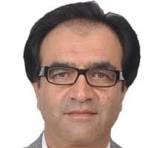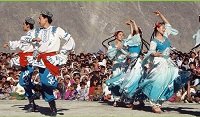The much-publicised Silk Route Festival, dubbed a cultural celebration, opened on Saturday at Hunza’s main town, Karimabad. But beneath the performances, exhibitions, and hollow promises lies a deliberate ploy by colonial and corporate powers to divert public attention from mounting crises of land and mineral resources exploitation, environmental destruction, and longstanding constitutional and democratic deprivation in Gilgit-Baltistan.
Gilgit-Baltistan is currently suffering under the worst forms of Pakistan’s colonial oppression, land grabs, and resource plunder. Amid this exploitation, yet another colonial state entity—the Pakistan Tourism Development Corporation (PTDC)—has teamed up with a handful of monopoly corporate groups, remnants of Hunza’s former princely rulers, and local collaborators to stage a fake “Silk Route Festival.”
The grand deception
The festival’s narrative that investment and tourism are the solutions to all problems is a familiar colonial tactic. It echoes the hypocrisy of the CEO of a big hotel chain who, reportedly, arrives at sites like Sost via helicopter and then speaks of environmental protection after contributing to its destruction.
Around the world, festivals are organised by elected local governments because they must protect and promote their history, heritage, geography, environment, culture, and sports. Unfortunately, under colonial occupation, Gilgit-Baltistan has been deprived of local governments for the last 20 years. More than two million people have been deliberately denied the basic democratic rights of voting in local elections and controlling municipal institutions. All decision-making power and public resources have been handed over to Pakistan’s bureaucracy, utterly disconnected from the people and local norms.
Who’s really behind the festival?
Pakistan Tourism Development Corporation (PTDC), the main organiser, has a long record of plundering Gilgit-Baltistan’s natural resources. Recently, it handed over 73 PTDC-operated motels and related infrastructure to Green Tourism, a business venture aligned with Pakistan’s military establishment, in Gilgit-Baltistan and Chitral.
In this context, PTDC has no legal or moral right to operate in Hunza or anywhere else in Gilgit-Baltistan. Yet its salaried employees remain dedicated to one task: facilitating the ruling elite.
The festival’s sponsors—United Bank Limited (UBL), Pakistan International Airlines (PIA), World Wide Fund for Nature (WWF), Hashoo Group, Legacy Hunza, and others — are all are facilitators in the colonial occupation and plunder of Gilgit-Baltistan’s natural resources lending the festival legitimacy while continuing to benefit politically and financially from the region’s colonial status.
Also read: Colonial rule fuels ecological catastrophes in Gilgit-Baltistan
The most disappointing aspect of this phenomenon is the role of business class and their representative bodies. With few exceptions, most local businesses, chambers of commerce, hotel associations, and even political activists refuse to question the festival’s corporate sponsors, the environmentally destructive hotel chains dominating Hunza’s tourism, or the colonial-business role of Hunza’s former ruling family.
No one is asking why Ghazanfar Ali Khan and his family are hosting the festival in their private garden, or what their true objectives are. It should be recalled that this family has exploited the people and lived for centuries off charity, taxes, commissions, and rents. This is their historical business model and political legacy.
Yet on August 9 and 10, PTDC’s non-local, anti-environment, tourism-bureaucrats, along with tour operators and colonial administrators, arrive in Hunza to give hollow speeches about protecting history, culture, and the environment, while preaching that the solution to every problem is more business and investment.
What the festival masks
The staged spectacle aims to distract Hunza youth from urgent systemic failures, deprivation of constitutional and democratic rights of over two million people who are denied elected local governments and municipal control.
Such activities are meant to detract people, especially youth, from the real issues—the Land Reforms Act, imposition of taxes and seizure of cross-border trade, the recent devastation at Hasanabad, Shimshal, and other valleys caused by climate change, state neglect and poor governance, the unchecked resource plunder, land grabs, the lack of basic public services like uninterrupted power supply, quality healthcare, education and internet facilities, and the looting of public funds by state institutions and bureaucrats.
This festival has a broader design aiming to hand over this strategically vital and mineral-rich region to foreign powers disguised as investment partners.
A call to action
Hunza’s youth, political activists and local businesses must urgently challenge this narrative and ask PTDC, the festival sponsors, and their local enablers: Who gave you the right, in the absence of any elected local government, to speak for Hunza’s culture, history, and heritage and to stage such festivals?
Will local institutions and businessmen stand with the people who are championing the establishment of local governments, an end to 78 years of colonially imposed rule, and real public services or side with the colonial rulers and their environmentally destructive, resource-grabbing corporate allies, and thereby participate in the destruction of your own homeland?

Safiullah Baig is a heritage and environmental expert, focused on nature-based tourism, and a political activist who analyses the destruction of nature by colonial and capitalist economies from a Marxist perspective.

The High Asia Herald is a member of High Asia Media Group — a window to High Asia and Central Asia

